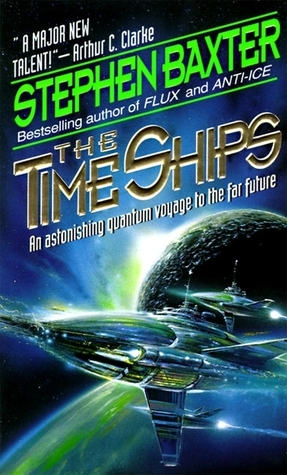
Time
Book Description
Time collapses and expands in spectacular ways as humanity grapples with its own survival against the relentless march of destiny. As timelines twist and intertwine, a radioactive future looms, threatening the very fabric of existence. A handful of determined individuals navigate a perilous world, battling against unfathomable odds and their own fractured relationships. With each tick of the clock, the stakes rise, blurring the lines between hope and despair. Will they unravel the mysteries of time before it consumes them? In a race against inevitability, can humanity rewrite its fate before it’s too late?
Quick Book Summary
Stephen Baxter’s "Time" is a sweeping, hard science fiction epic that explores the collapse and expansion of timelines as humanity faces a radioactive extinction and struggles for survival. The story follows a group of scientists, dreamers, and outcasts who challenge the deterministic flow of time, searching for meaning and hope in a universe seemingly bent on oblivion. As reality fractures and time loops upon itself, these characters confront profound personal dilemmas, philosophical questions, and the possibility of reshaping destiny. Baxter weaves intricate scientific ideas, emotional depth, and grand cosmic stakes, presenting a chilling vision of the future where the boundaries between hope and despair blur, and the fate of humanity hangs in the balance, dictated by the enigmatic nature of time itself.
Summary of Key Ideas
Table of Contents
Determinism Versus Free Will in Human Destiny
The story unfolds in a near-future Earth teetering on the edge of disaster, introducing a cast of scientists and visionaries wrestling with both cosmic mysteries and intimate human conflicts. As looming ecological collapse and radiation threaten civilization, the central characters become obsessed with understanding time’s strange behavior. Their journey is anchored in rigorous scientific research—grounded in the theoretical frameworks of quantum mechanics and cosmology—making impossible phenomena plausible and urgent.
Scientific Exploration and Cosmic Scale
The primary conflict revolves around the tension between determinism and free will. Characters struggle with the question: Is humanity doomed to extinction, or can the future be changed through knowledge and action? Individual decisions ripple across time, creating paradoxes and alternate possibilities. Baxter probes the philosophical and practical implications of time travel, raising the stakes as protagonists seek to alter destiny by confronting mysterious signals from the far future and distant past.
Interconnectedness of Human Relationships Across Time
At its core, "Time" is about survival, both collective and personal. As time fractures, small, desperate acts of hope emerge—none more poignant than the characters’ efforts to save loved ones or connect with future generations. However, the universe often frustrates these efforts, confronting them with relentless entropy and existential despair. Their relationships—sometimes fractured, sometimes redemptive—mirror the broader chaos and uncertainty of the cosmos.
Survival Amid Catastrophic Futures
Baxter layers speculative science with emotional realism. The protagonists experiment with time manipulation—from quantum computers to neural interfaces—transforming theoretical ideas into desperate gambits for survival. The narrative is densely packed with imaginative explorations: parallel universes, cosmic cycles, and the lonely intelligence of a dying universe all collide. Within this, the personal stakes remain clear, rooting the cosmic spectacle in human vulnerability and determination.
The Nature and Manipulation of Time
Ultimately, "Time" poses unresolved questions about fate, legacy, and agency. The characters’ victories are bittersweet and partial, as the vastness of time resists easy resolution. Yet, through grit, reason, and fragile compassion, they illuminate humanity’s enduring drive to understand and shape the universe—no matter how overwhelming or indifferent. Baxter’s novel is a profound meditation on the possibilities and limits of rewriting destiny, combining cold scientific rigor with the heat of human empathy.
Download This Summary
Get a free PDF of this summary instantly — no email required.





